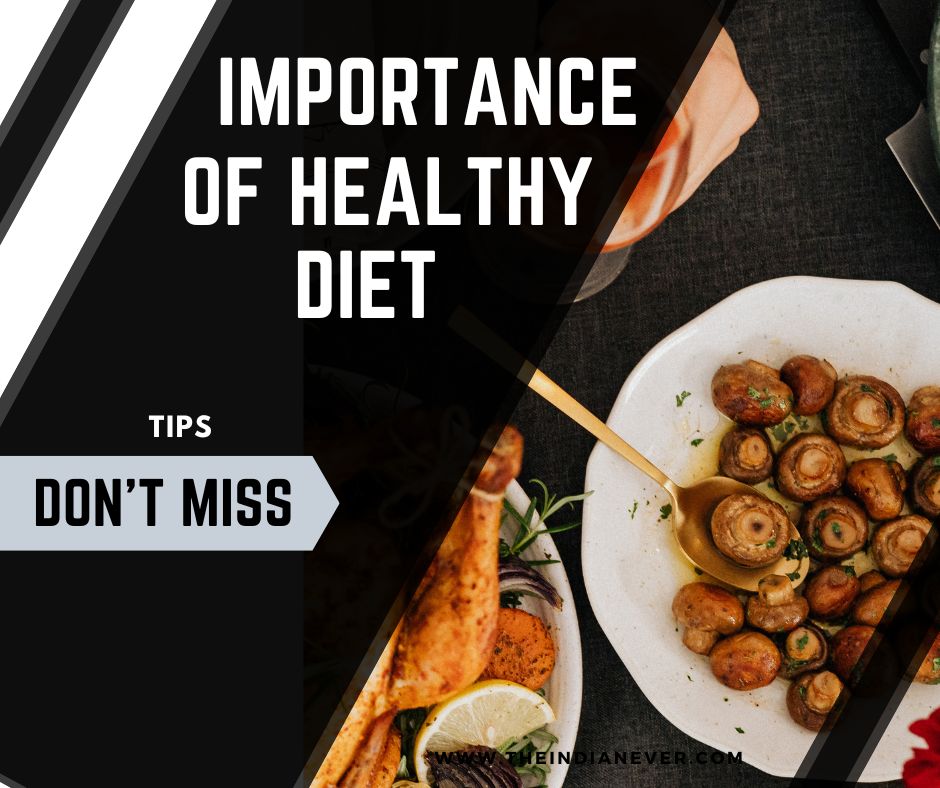Many youngsters and teens as well as senior citizens face the health issue. So I decided to write a detailed article on the Importance of a Balance Diet that can save you money as well and make your life happy and easy.
A balanced diet is one that provides the body with all the essential nutrients it needs to function properly. Consuming a variety of nutrient-dense foods in moderation is key to achieving a balanced diet, which can help maintain good health, prevent chronic diseases, and improve mood and energy levels.
The Importance of a Balanced Diet
A balanced diet provides the body with essential nutrients such as vitamins, minerals, and other essential nutrients. These nutrients are important for maintaining good health and preventing chronic diseases such as obesity, heart disease, and diabetes. By eating a balanced diet, you can ensure that your body is getting all the nutrients it needs to function properly.
Eating a variety of foods from different food groups is also important for maintaining good health. Each food group provides different nutrients that are important for overall health. Fruits and vegetables are rich in vitamins, minerals, and fiber, and can help reduce the risk of chronic diseases such as heart disease, stroke, and certain types of cancer. Whole grains are a good source of fiber, which can help regulate digestion and reduce the risk of heart disease and diabetes. Lean proteins such as chicken, fish, and beans provide essential amino acids, which are important for building and repairing tissues in the body. Healthy fats such as nuts, seeds, and avocado can help reduce inflammation and improve heart health.
By consuming a variety of nutrient-dense foods in moderation, you can ensure that your body is getting all the essential nutrients it needs to function properly. This can help maintain good health, prevent chronic diseases, and improve overall well-being.
The Benefits of a Balanced Diet
Maintaining a balanced diet can have a number of benefits for overall health and well-being. Here are some of the key benefits of consuming a balanced diet:
- Maintains a healthy weight: Consuming too many calories from unhealthy foods can lead to weight gain and increase the risk of chronic diseases. By choosing a variety of nutrient-dense foods in moderation, you can help maintain a healthy weight and reduce the risk of chronic diseases.
- Improves heart health: Consuming a diet rich in fruits, vegetables, whole grains, lean proteins, and healthy fats can help reduce the risk of heart disease. These foods can help lower cholesterol levels, reduce inflammation, and improve overall heart health.
- Reduces the risk of chronic diseases: Eating a balanced diet can help reduce the risk of chronic diseases such as obesity, heart disease, and diabetes. Consuming a variety of nutrient-dense foods in moderation can provide the body with the nutrients it needs to function properly and reduce the risk of chronic diseases.
- Improves digestion: Eating a diet rich in fiber can help regulate digestion and reduce the risk of constipation and other digestive problems.
- Improves mood and energy levels: Eating a diet rich in whole foods and avoiding processed and sugary foods can help stabilize blood sugar levels, leading to more sustained energy throughout the day. Consuming a balanced diet can also help improve mood and reduce the risk of depression and other mood disorders.
Tips for Achieving a Balanced Diet
Achieving a balanced diet doesn’t have to be complicated. Here are some simple tips for consuming a variety of nutrient-dense foods in moderation:
- Choose a variety of fruits and vegetables: Aim for at least 5 servings of fruits and vegetables per day, and choose a variety of colors to ensure you are getting a mix of different vitamins and minerals.
- Incorporate whole grains into your diet: Choose whole-grain bread, pasta, and rice instead of refined grains to ensure you are getting more fiber and other essential nutrients.
- Choose lean proteins: Choose lean proteins such as chicken, fish, beans, and legumes instead of red meat and processed meats. These sources of protein are lower in saturated fat and can help reduce the risk of heart disease.
- Limit processed and sugary foods: Processed and sugary foods such as candy, chips, and soda should be limited in a balanced diet. These foods are often high in calories, unhealthy fats, and added sugars, which can lead to weight gain and increase the risk of chronic diseases.
- Drink plenty of water: Drinking water is important for overall health and can help regulate digestion, prevent dehydration, and improve skin health. Aim for at least 8 glasses of water per day, and choose water instead of sugary drinks such as soda and juice.
- Plan meals ahead of time: Planning meals ahead of time can help ensure that you are consuming a variety of nutrient-dense foods in moderation. Consider meal prepping on the weekends to have healthy meals ready to go throughout the week.
- Listen to your body: Pay attention to how different foods make you feel. If you feel sluggish after consuming a large meal, try reducing your portion sizes or choosing lighter options such as salads or soups.
Incorporating a balanced diet into your lifestyle can take time, but the benefits are worth it. By consuming a variety of nutrient-dense foods in moderation, you can improve overall health, prevent chronic diseases, and improve mood and energy levels. Remember to make small changes over time and listen to your body to find the balance that works best for you.
